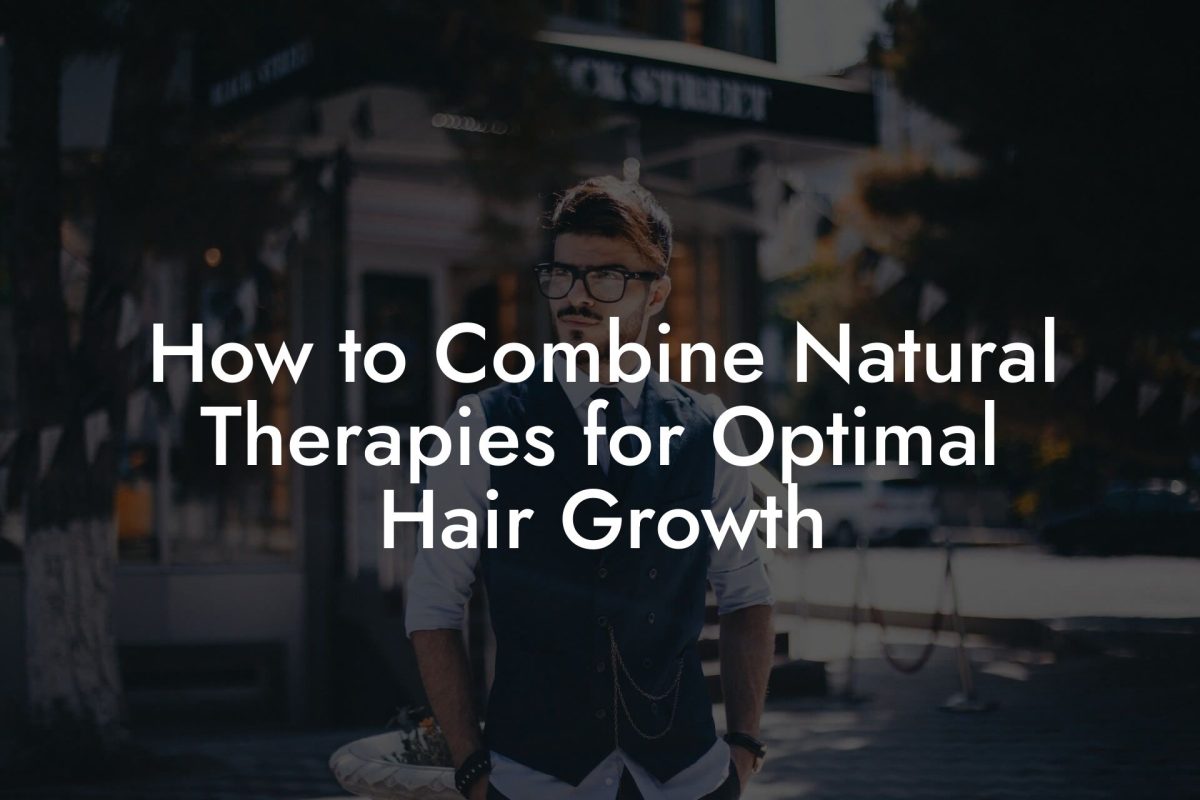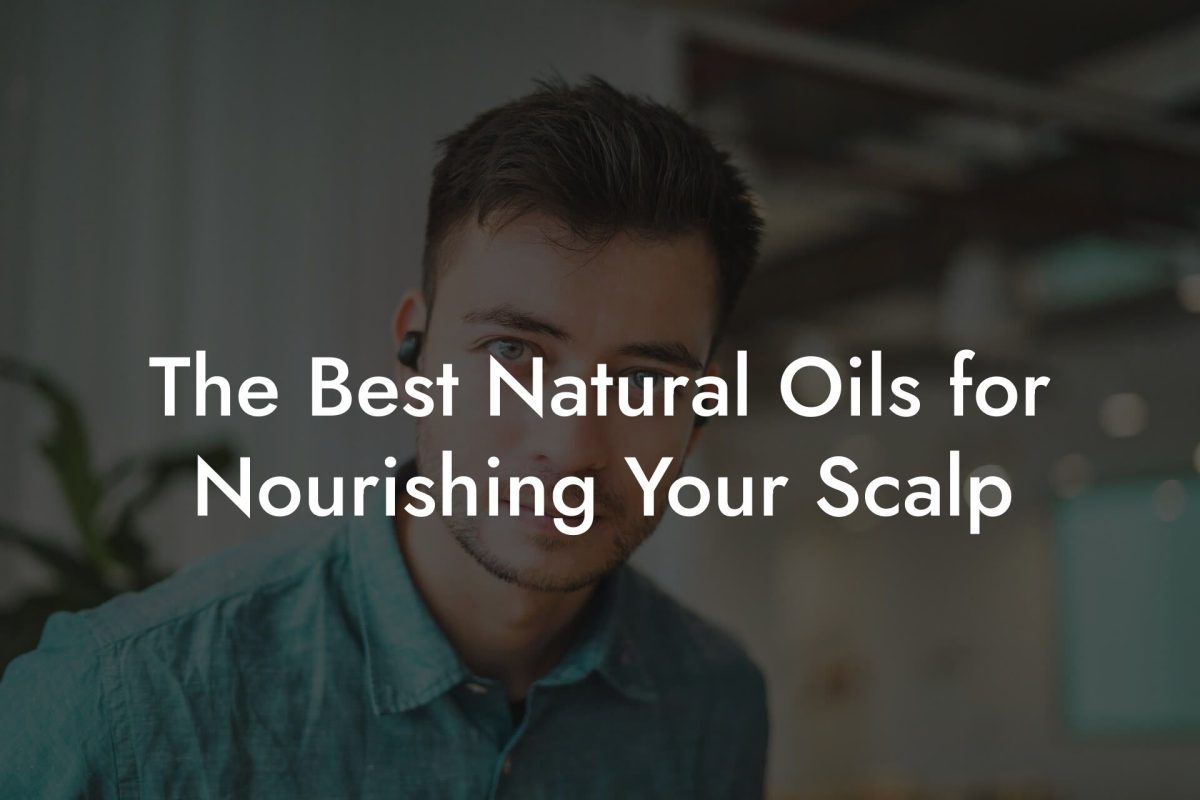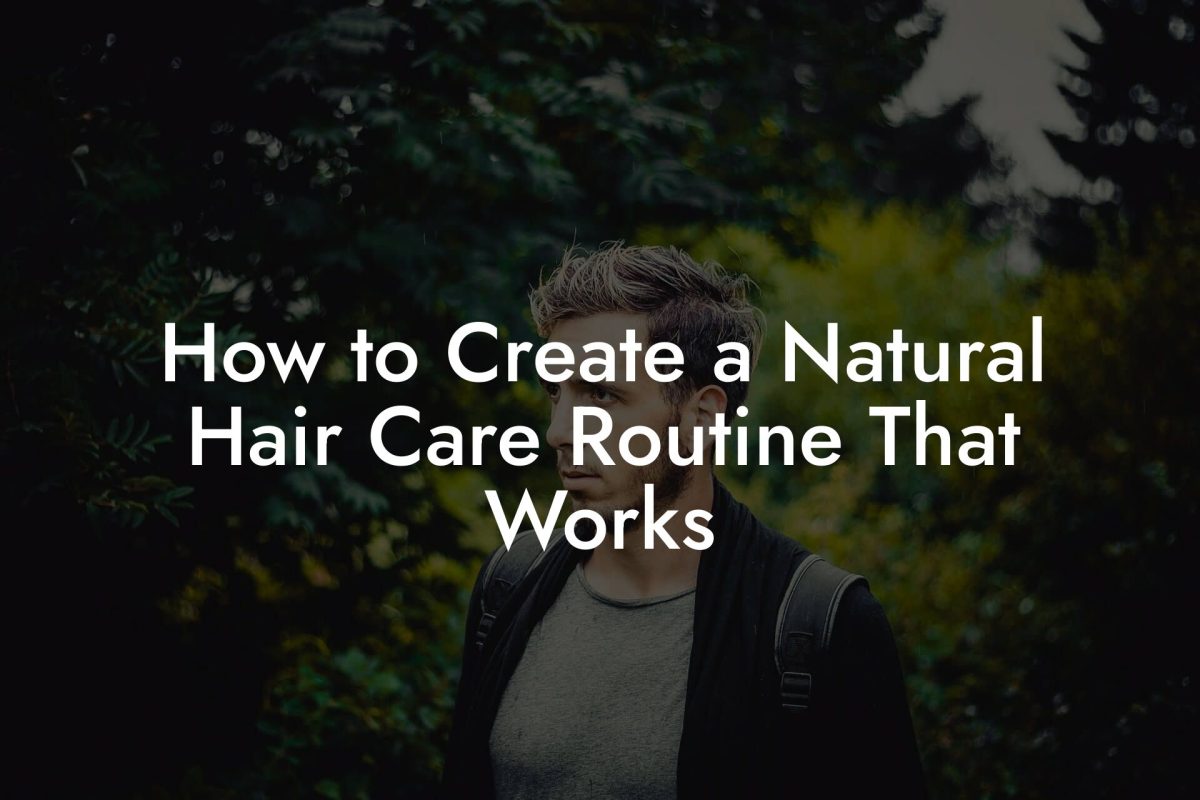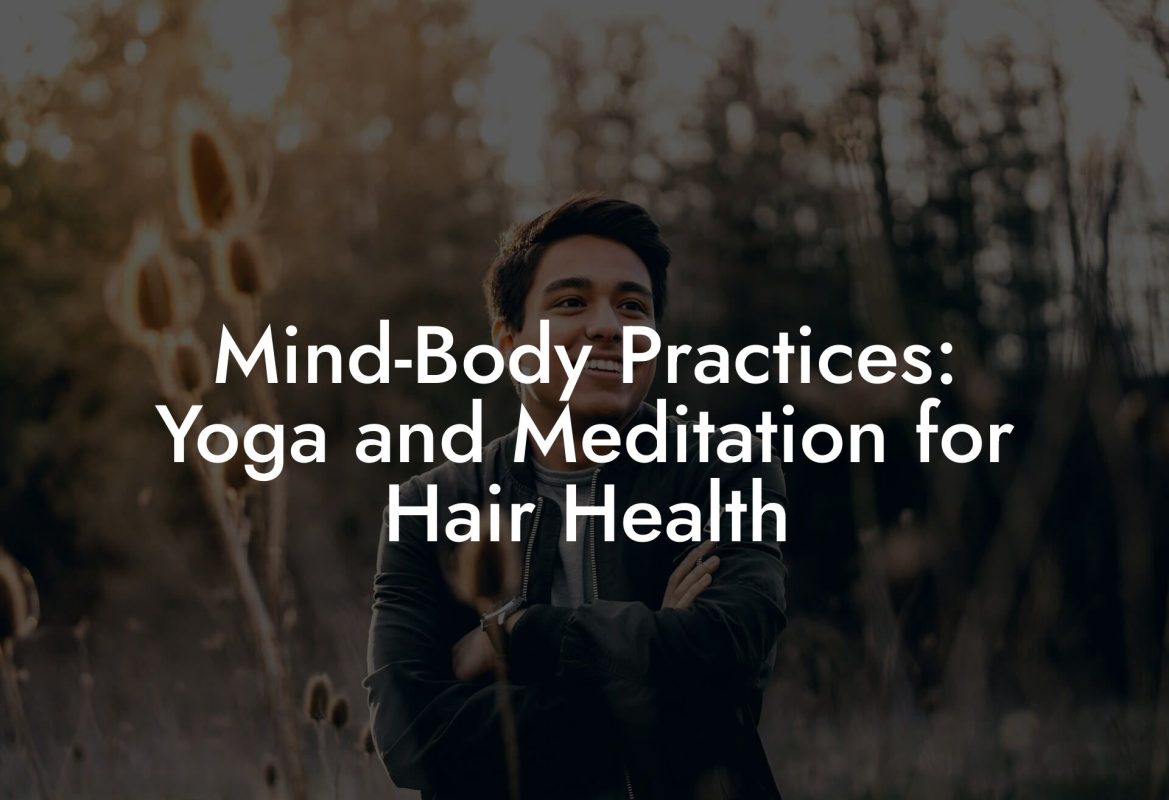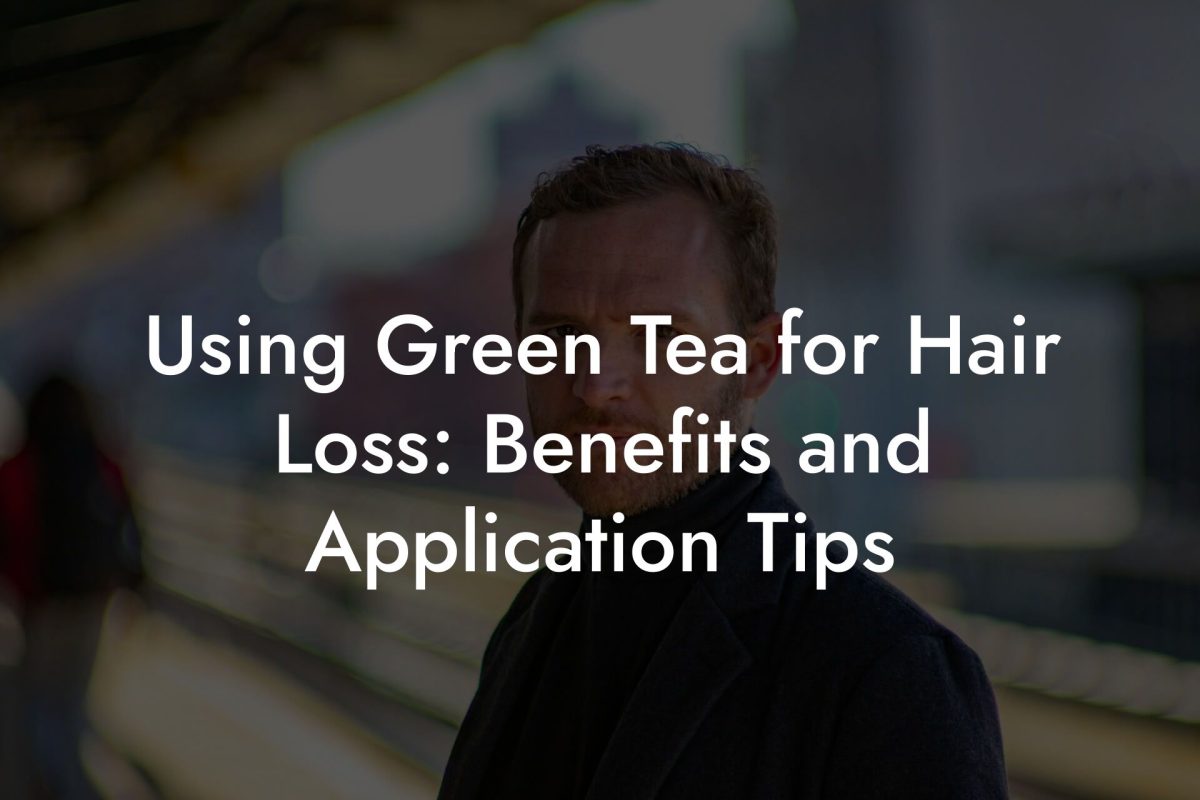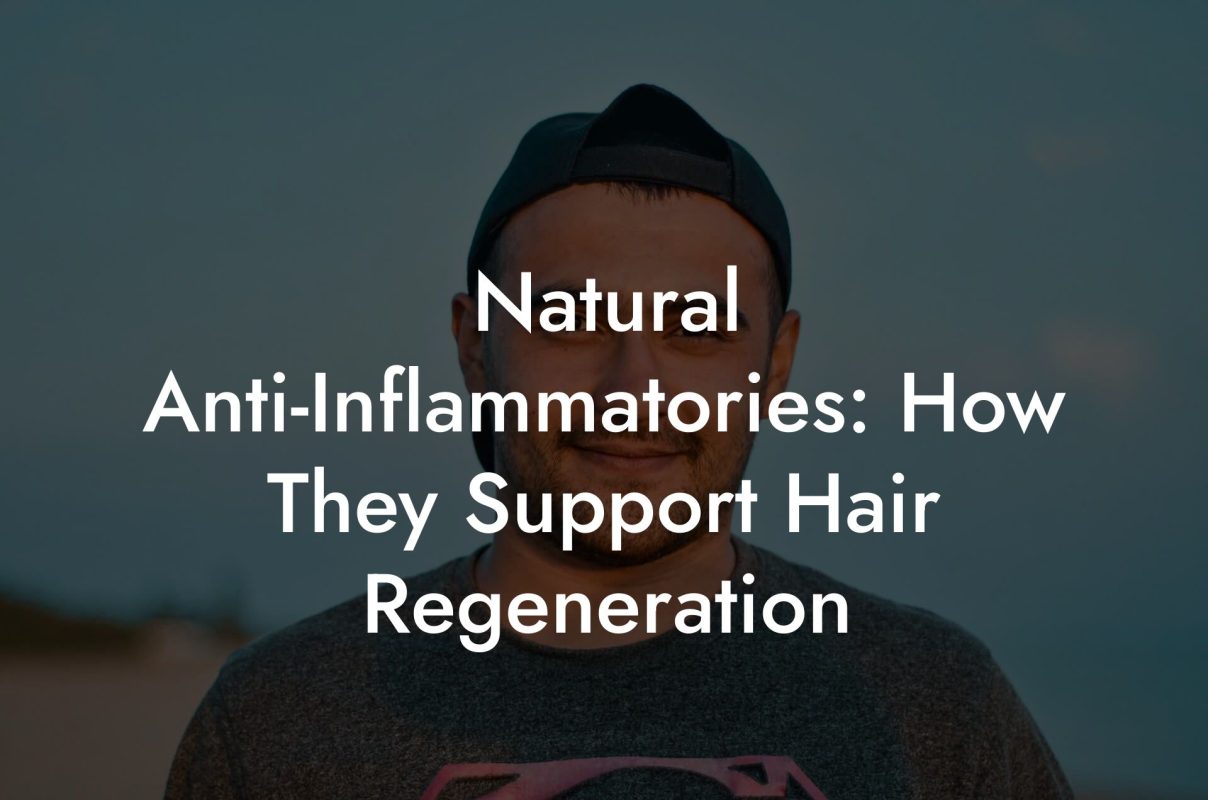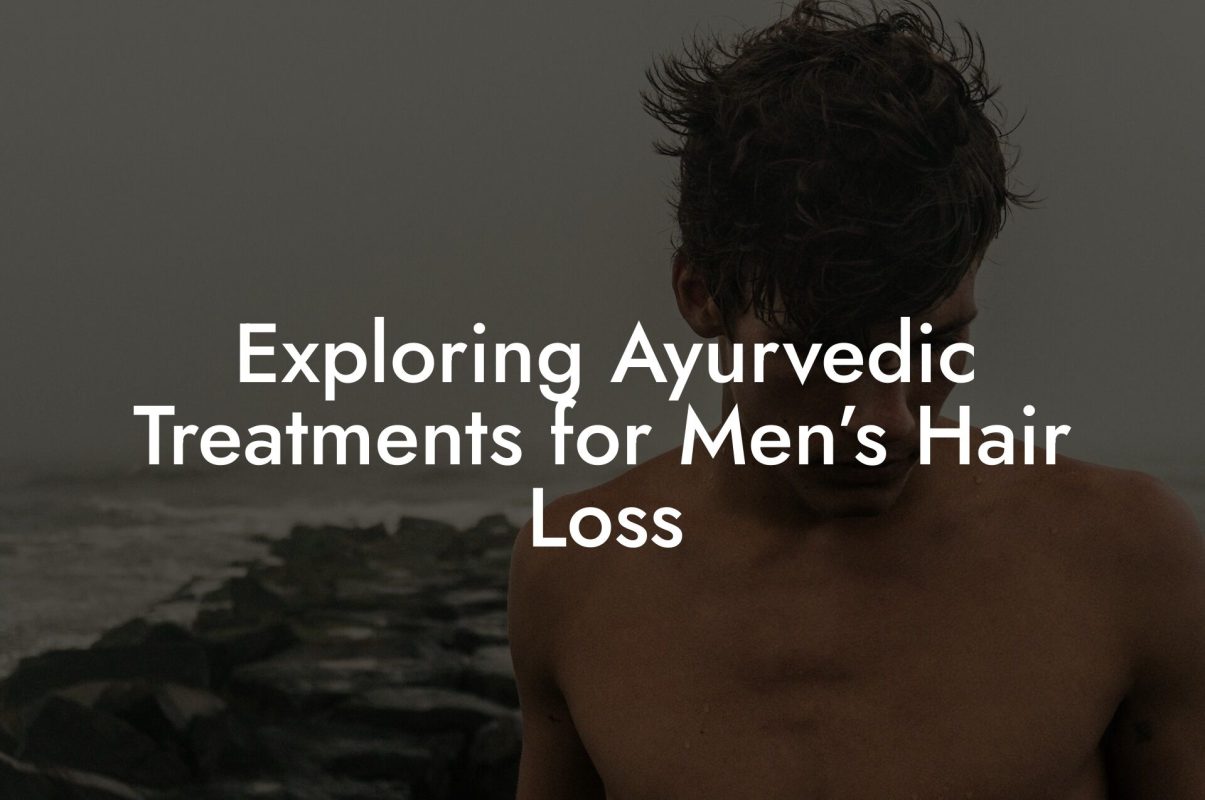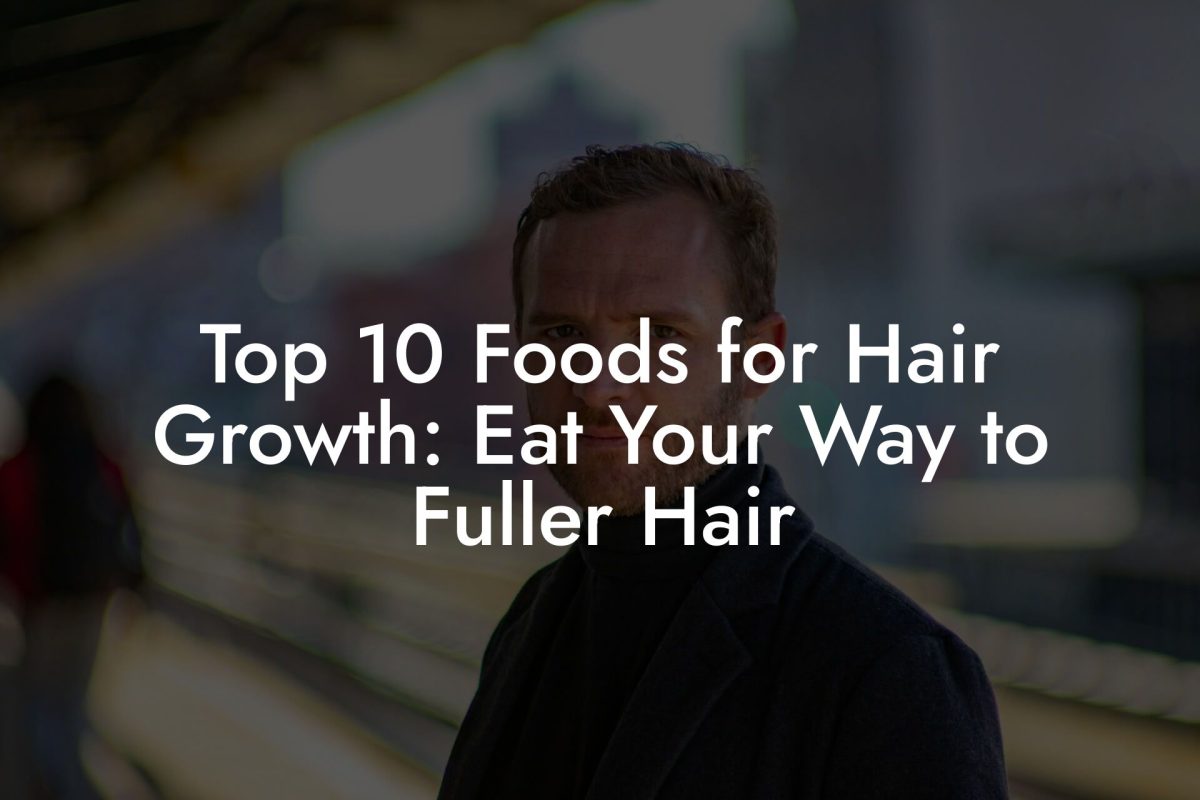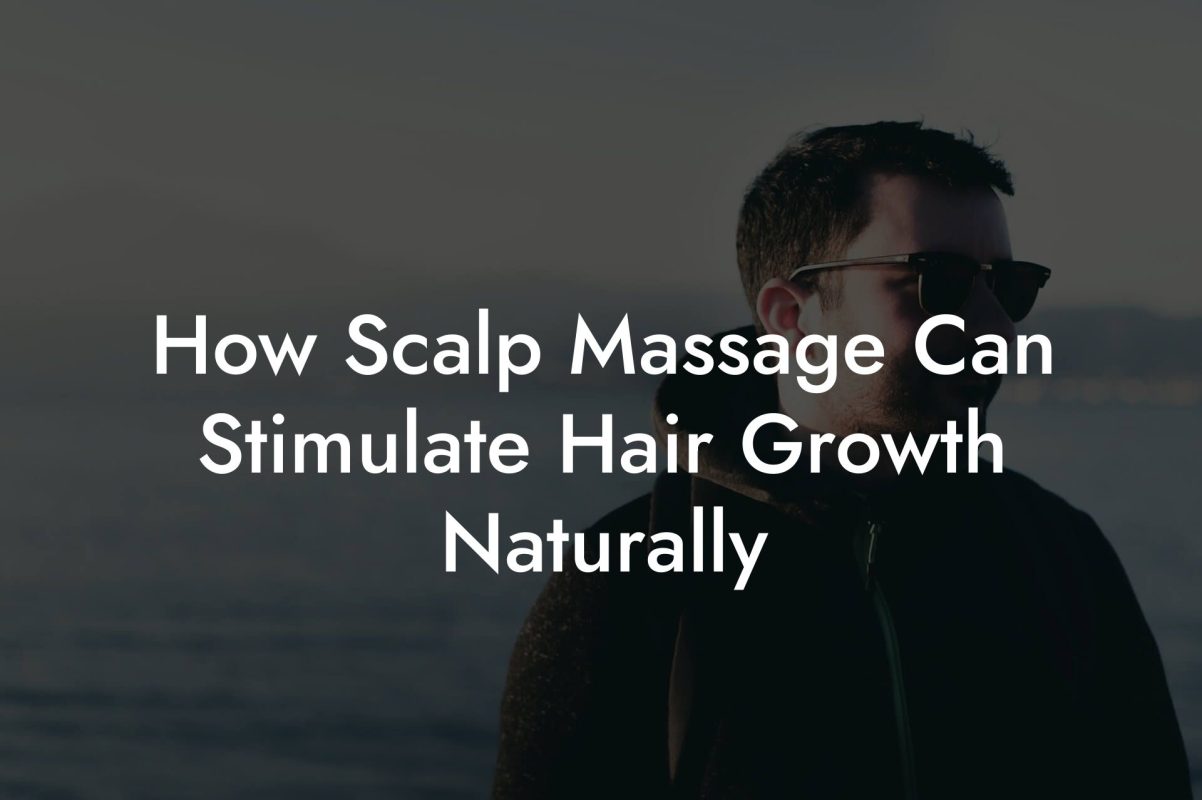Hair Loss Library
Stress-Relief Techniques That May Improve Your Hair Health
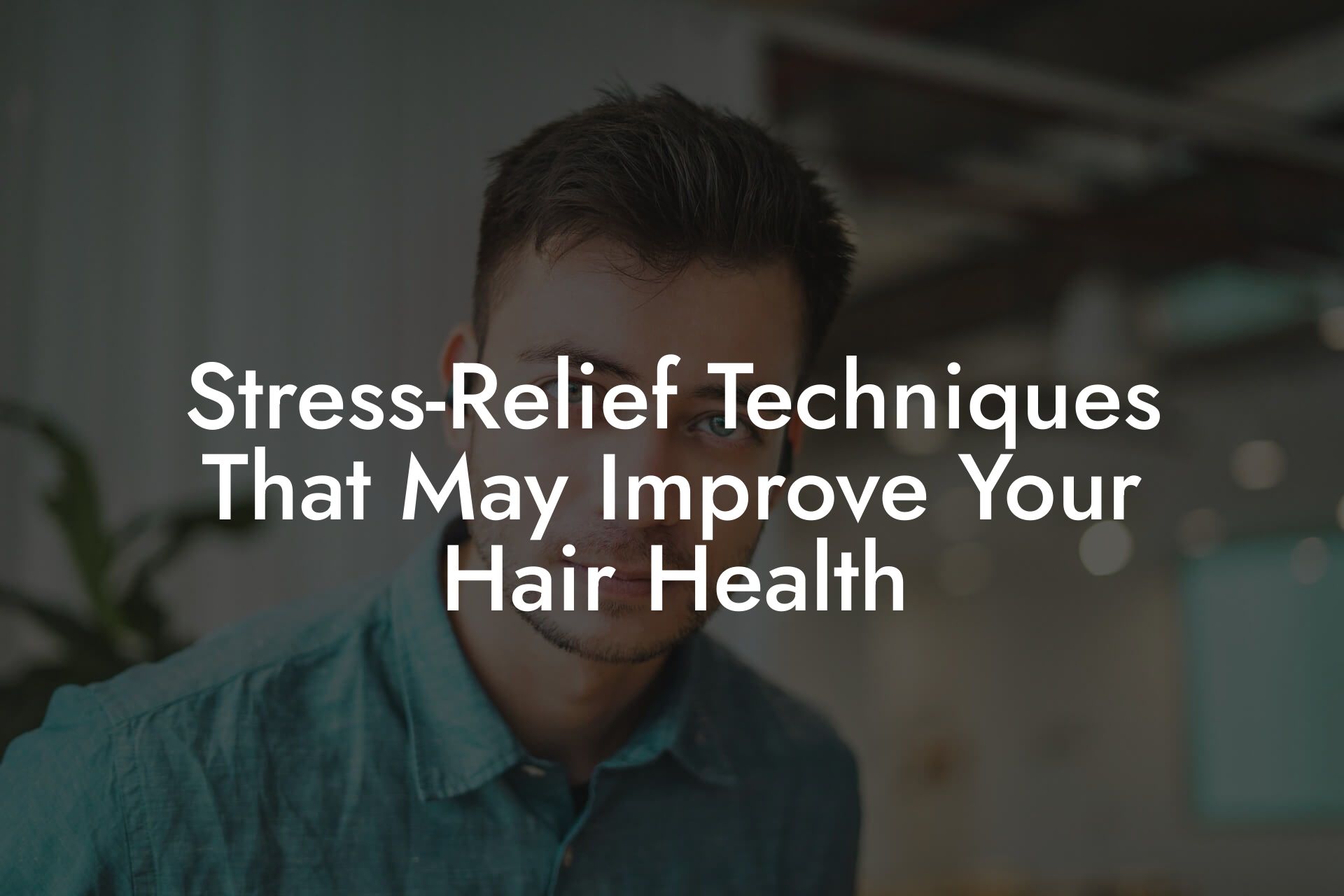
Ever noticed how a stressed-out vibe can make not only your mood sour but your hair look less than fabulous? Imagine if there were stress-relief hacks that not only melt away that inner tension but also breathe new life into your thinning mane. Welcome to our deep-dive into "Stress-Relief Techniques That May Improve Your Hair Health", where we explore scientifically backed and downright fun methods to help you tackle stress and give your hair the boost it deserves. Whether you’re battling the relentless pressures of modern life or navigating the complexities of men’s hair loss without the awkward doctor visits, this guide is tailor-made for you—the savvy Gen Z and millennial man looking to level up his hair game.
Understanding the Connection: Stress and Hair Health
Before we dive into the nitty-gritty of stress-relief techniques, let's break down the connection between stress and your hair. In today’s fast-paced world, stress isn’t just a buzzword—it’s an uninvited guest that can wreak havoc on your body, especially your hair. When you're stressed, your body secretes cortisol, the notorious stress hormone that not only messes with your mood but also disrupts the hair growth cycle.
Elevated cortisol levels can lead to a host of scalp issues such as inflammation, reduced circulation, and a disturbed balance of hormones. For men experiencing hair loss, this can be particularly frustrating as stress can push hair follicles from the active growing phase (anagen) to the resting and shedding phase (telogen), ultimately contributing to thinning hair.
Understanding this connection gives us the perfect starting point to address the root of the problem: stress. By adopting effective stress-relief techniques, you can not only reclaim your cool but also foster a better environment for hair growth, improved scalp health, and enhanced hair resilience.
The Science Behind Stress-Induced Hair Loss
Let’s geek out a bit. Hair follicles are super sensitive mini factories influenced by biology, environment, and—yes—stress. When cortisol levels spike, they trigger a stress response in hair follicles by altering the microenvironment. Imagine your scalp as a bustling party: when stress crashes the party, it leaves behind a mess that can disrupt the rhythm of hair growth.
Researchers have shown that prolonged stress can lead to a condition called telogen effluvium—where a significant number of hair follicles prematurely enter the resting phase, causing noticeable shedding. Alongside this, stress can interfere with the production of key hormones like testosterone and dihydrotestosterone (DHT), compounds that play a major role in male pattern hair loss.
The takeaway? Lowering stress isn’t just about calming your mind; it's also a strategic move for superior hair health. By focusing on stress reduction, you’re essentially giving your hair a fighting chance to bounce back and thrive.
Stress-Relief Techniques for Better Hair Health: A Multifaceted Approach
Ready to swap stress for strength? Let’s explore a range of techniques that target both your mind and your mane. Whether you prefer high-energy workouts, quiet moments of introspection, or nourishing your body with the right foods, there's something here for everyone.
Mindfulness Meditation: Calm Your Mind, Nurture Your Hair
Mindfulness meditation is like giving your brain a spa day. By dedicating just a few minutes each day to mindful breathing, you allow your mind to settle into a state of calm. Reducing stress through meditation not only helps manage cortisol levels but also creates a conducive environment for healthy hair growth.
Try finding a quiet corner, closing your eyes, and focusing solely on your breath. Apps like Headspace or Calm can be your trusty companions on this journey. Over time, you might notice a decrease in overall stress levels, which can contribute to improved scalp circulation and, yes, better hair health.
Yoga and Pilates: Stretch, Strengthen, and Stimulate
If meditation alone doesn’t cut it, why not couple it with some yoga or Pilates? These practices are excellent for decreasing stress while promoting physical strength. Flowing through a series of yoga poses not only releases endorphins but also improves blood flow to the scalp—providing vital nutrients to your hair follicles.
Incorporate poses like the Downward Dog, Child's Pose, or even gentle backbends to stimulate relaxation and rejuvenation. Pilates, with its focus on core strength and controlled movements, can also contribute to better posture and overall fitness, indirectly boosting your mood and hair vitality.
Cardiovascular Exercise: Pump Up Your Endorphins
Ever heard of the phrase “sweat it out”? Cardiovascular exercise is an amazing stress buster that releases endorphins—your body’s natural “feel-good” chemicals. Engaging in regular aerobic activity, like running, cycling, or even brisk walking, not only manages stress levels but also enhances circulation throughout your body, reaching even the hair follicles.
A consistent workout routine can help maintain a healthy hormone balance and reduce the disruptive effects of cortisol on hair growth. Best of all, a little sweat session might just be the ticket to unlocking your best hair days.
Progressive Muscle Relaxation: Unwind from Head to Toe
Progressive muscle relaxation (PMR) is another stellar technique for combating stress. This involves tensing and then slowly releasing each muscle group in your body, which not only helps relax your muscles but also lets your mind clear out the day's tension.
By systematically focusing on different areas—from your scalp and neck to your arms and legs—you actively combat the physical manifestations of stress. For those noticing tension around the head and neck (a common area linked to scalp tension and hair follicle stress), PMR can be a game-changer.
Scalp Massages and Self-Care Rituals for Hair Health
While reducing overall stress is crucial, direct self-care for your scalp can work wonders for hair health. Scalp massages, an age-old practice, help boost blood circulation and stimulate hair follicles. Think of it as a mini-massage for your head, delivering nourishment right where it counts.
How to Give Yourself a Scalp Massage
Find a few minutes during your nightly routine and use your fingertips to massage your scalp in circular motions. Incorporate natural oils like rosemary, peppermint, or even coconut oil—the latter for its famed moisturizing properties—to enhance the experience.
This simple self-care ritual not only relaxes you but also effectively increases blood flow, delivering more oxygen and nutrients to your hair roots. Over regular practice, many have noticed improvements in scalp elasticity and a subtle yet powerful boost in hair density.
Other Self-Care Practices
In addition to scalp massages, consider incorporating a daily routine that includes everything from mindful skincare to a soothing hot shower. These small acts of self-care remind you to slow down and refocus, which is exactly what your body and hair crave in the midst of life’s chaos.
Nutritional Strategies: Feed Your Follicles Right
You might have heard the phrase “you are what you eat,” and when it comes to hair health, this couldn’t be more accurate. A balanced, nutrient-dense diet supports your body’s natural processes and aids in tackling hair loss. Paying attention to nutrition plays an understated yet pivotal role in how your hair grows and thrives.
Key Nutrients for Hair Health
Certain vitamins and minerals are integral to maintaining vibrant hair:
- Biotin: Often hailed as the hair vitamin, biotin is essential for keratin production, a protein that makes up your hair.
- Omega-3 Fatty Acids: Found in fish like salmon and sardines, omega-3s help reduce inflammation and support scalp health.
- Vitamin D: Insufficient vitamin D levels have been linked to hair loss, while adequate exposure enhances follicle health.
- Iron: A lack of iron can lead to reduced oxygen supply to hair follicles, especially in men with underlying deficiencies.
- Zinc: Critical for tissue repair and cellular growth, zinc helps maintain the health of oil glands around follicles.
Incorporate foods such as leafy greens, eggs, nuts, seeds, and fatty fish into your diet. If you’re not getting enough of these nutrients through diet alone, consider speaking with a nutritionist about supplements designed for hair health.
Hydration and Antioxidants
Staying hydrated is a game-changer for overall health, including your locks. Water helps transport essential nutrients to your scalp and hair follicles. Additionally, antioxidants—abundant in fresh fruits and vegetables—help fend off oxidative stress, which can damage hair cells.
Remember, feeding your follicles isn’t just about supplements. It’s about creating an overall lifestyle plan that prioritizes nutrition, hydration, and well-rounded wellness.
Sleep, Stress Management, and Your Hair Regeneration
Quality sleep is like a nightly detox for both your mind and body. When you’re sleep-deprived, your body cranks out more cortisol, which can exacerbate stress-related hair loss. A solid sleep routine not only helps manage stress but gives your hair follicles the downtime to reset and regenerate.
Aim for 7-9 hours of uninterrupted sleep, and consider bedtime routines that promote a true wind-down. Dim the lights, cut off screens at least an hour before bed, and maybe even indulge in a calming herbal tea. These nightly habits can create a more restorative sleep environment, reducing stress levels and lending a helping hand to your hair’s natural growth processes.
The interplay between sleep and stress management is often underestimated. Yet, both are critical factors in sustaining not only your overall health but also in maintaining a thriving mane.
Holistic Approaches: Balancing Life for Optimal Hair Health
Sometimes the simplest changes in your daily routine can have a profound impact. A holistic approach to stress and hair health considers not just one, but multiple facets of your lifestyle. From your daily habits to your self-care rituals, everything interconnects to create the perfect environment for robust hair growth.
Consider combining several techniques from this guide into one comprehensive plan. A balanced diet is more effective when paired with proper sleep and consistent exercise. Similarly, mindfulness practices can seamlessly integrate with physical activities like yoga or even a well-scheduled cardio session. The goal is to reduce overall levels of stress so your body can switch off the negative effects of cortisol on hair follicles.
Integrating Multiple Practices for Maximum Impact
There’s actually something incredibly liberating about knowing that a few small changes here and there—like adding a five-minute meditation session during lunch or a brief scalp massage before bed—can collectively build up to a big win for your health. Over time, these practices work synergistically to promote hormone balance, stabilize your mood, and foster an optimal environment for hair regeneration.
The secret here is consistency and mindfulness. Even on your busiest days, remember that a few moments dedicated to self-care can pave the way for healthier hair and a clearer head.
Creating a Personalized Stress-Relief Routine for Better Hair Health
Now that we’ve explored a variety of techniques, it’s time to personalize your own stress-relief routine. Tailor these strategies to fit your lifestyle, interests, and specific hair health needs. Here are some tips on designing a routine that resonates with you:
Step 1: Reflect on Your Current Lifestyle
Start by taking an honest look at your day-to-day habits. Are you getting enough sleep? How are your eating habits? Do you take time to relax? Identifying the areas that need improvement will help you prioritize which stress-relief techniques to implement.
Step 2: Set Realistic Goals
Instead of overhauling your entire life overnight, set achievable goals—like a daily 10-minute meditation, a three-times-a-week workout session, or revamping your diet with a focus on anti-inflammatory foods. Small, sustainable changes often lead to lasting results.
Step 3: Experiment with a Mix of Techniques
Don’t be afraid to experiment! Alternate between mindfulness meditation, yoga, and even progressive muscle relaxation to see which practices resonate best with you. Keep a journal of your progress to note improvements—in mood, stress levels, and yes, even hair strength.
Step 4: Adjust and Evolve
Your stress-relief routine should be as dynamic as your lifestyle. Regularly assess what’s working and what isn’t, and feel free to swap out techniques that don’t make a difference. Evolution is key; as you learn more about yourself, your routine should shift to meet your changing needs.
With a little trial and error, you’re sure to build a regimen that not only helps manage stress but also creates a nurturing environment for your hair to flourish.
Resources and Community Support: Your Next Steps
Embarking on this journey towards improved hair health and reduced stress can be empowering, but you don’t have to do it alone. Consider joining online communities, following influential wellness blogs, and even exploring personalized consultations to get expert guidance—without the embarrassment or high costs often associated with medical consultations.
At Mane Matrix, we value community support and believe that sharing real-life stories and experiences can help create a roadmap for success. Whether you’re a fitness enthusiast trying out new workouts, a food lover curating anti-inflammatory recipes, or someone discovering the benefits of meditation and yoga, there’s an entire community of like-minded individuals ready to support your journey.
Dive into forums, sign up for webinars, or engage in social media groups where experts share tips and success stories. The best part? You’ll be learning alongside others who get the struggle of balancing life, stress, and hair health. Remember, every small step you take today lays the foundation for a healthier tomorrow.
Frequently Asked Questions: Stress and Hair Health
Below are some of the most frequently asked questions about stress-relief techniques and their impact on hair health. These answers provide insights into managing stress and enhancing your hair’s natural vitality.
1. How does stress actually affect hair growth?
Stress increases cortisol levels, which can disrupt the normal hair growth cycle by pushing hair follicles into the resting phase, leading to increased shedding and potential thinning.
2. Can mindfulness meditation really help improve hair health?
Yes, mindfulness meditation lowers stress and cortisol levels, fostering better circulation and hormone balance which contribute to a healthier environment for hair growth.
3. What type of exercise is most beneficial for reducing stress-related hair loss?
Cardio workouts, yoga, and Pilates are all excellent choices. These activities boost endorphin production and improve blood circulation, which in turn can positively impact hair growth.
4. Are scalp massages effective in enhancing hair health?
Absolutely. Scalp massages stimulate blood flow to the hair follicles, aiding in nutrient transport and potentially promoting thicker hair over time.
5. What nutritional changes can help mitigate hair loss due to stress?
A diet rich in biotin, omega-3 fatty acids, vitamin D, iron, and zinc can help maintain strong hair. Hydration and antioxidants from fruits and vegetables also play a key role.
6. How does proper sleep influence hair health?
Quality sleep regulates hormone levels, reduces cortisol, and allows your body (and hair follicles) to regenerate and repair during rest.
7. Can these stress-relief techniques replace medical treatments for hair loss?
While these techniques can significantly improve hair health and reduce stress, they work best as part of an overall lifestyle approach. For severe hair loss, consulting with a specialist is always recommended.
8. How long does it take to notice improvements in hair health after reducing stress?
Results vary from person to person, but many report seeing improvements in as little as a few months with consistent stress management and a healthy lifestyle.
Your Path to Reduced Stress and Thriving Hair
The journey to better hair health through stress-relief is both exciting and empowering. Every mindful breath, every lap around the block, and every nourishing bite is a step toward a healthier you—not just in terms of hair, but overall wellness.
Embracing these techniques not only helps mitigate the effects of stress on your body but also reinvigorates your hair follicles, encouraging growth and strengthening your mane. Remember, the habits you build today pave the way for a vibrant, confident tomorrow.
At Mane Matrix, we get it—life is hectic, and male hair loss can be a major downer. But fostering a balanced lifestyle that manages stress can be a game-changer. So why not start today? Whether it’s through a daily meditation session, a new workout routine, or even just a dedicated scalp massage ritual, every effort counts.
Step into a future where stress is tackled head-on and your hair reflects the resilience and energy of your spirit. Here’s to embracing a routine that turns stress into strength and thinning hair into a vibrant crowning glory!
If you loved this article... Dive deeper into the world of mens hair loss with our most popular sections. If there is anything you think is missing or anything you would love for us to write about, just give us a shout.
Nature’s Answer: Top Herbal Remedies to Combat Men’s Hair Loss
Essential Oils for Hair Regrowth: What Works and How to Use Them
DIY Hair Masks: Natural Recipes for Healthier Hair
Vitamins and Minerals: The Natural Boost Your Hair Needs
Acupuncture for Hair Loss: Can Traditional Techniques Make a Difference?





